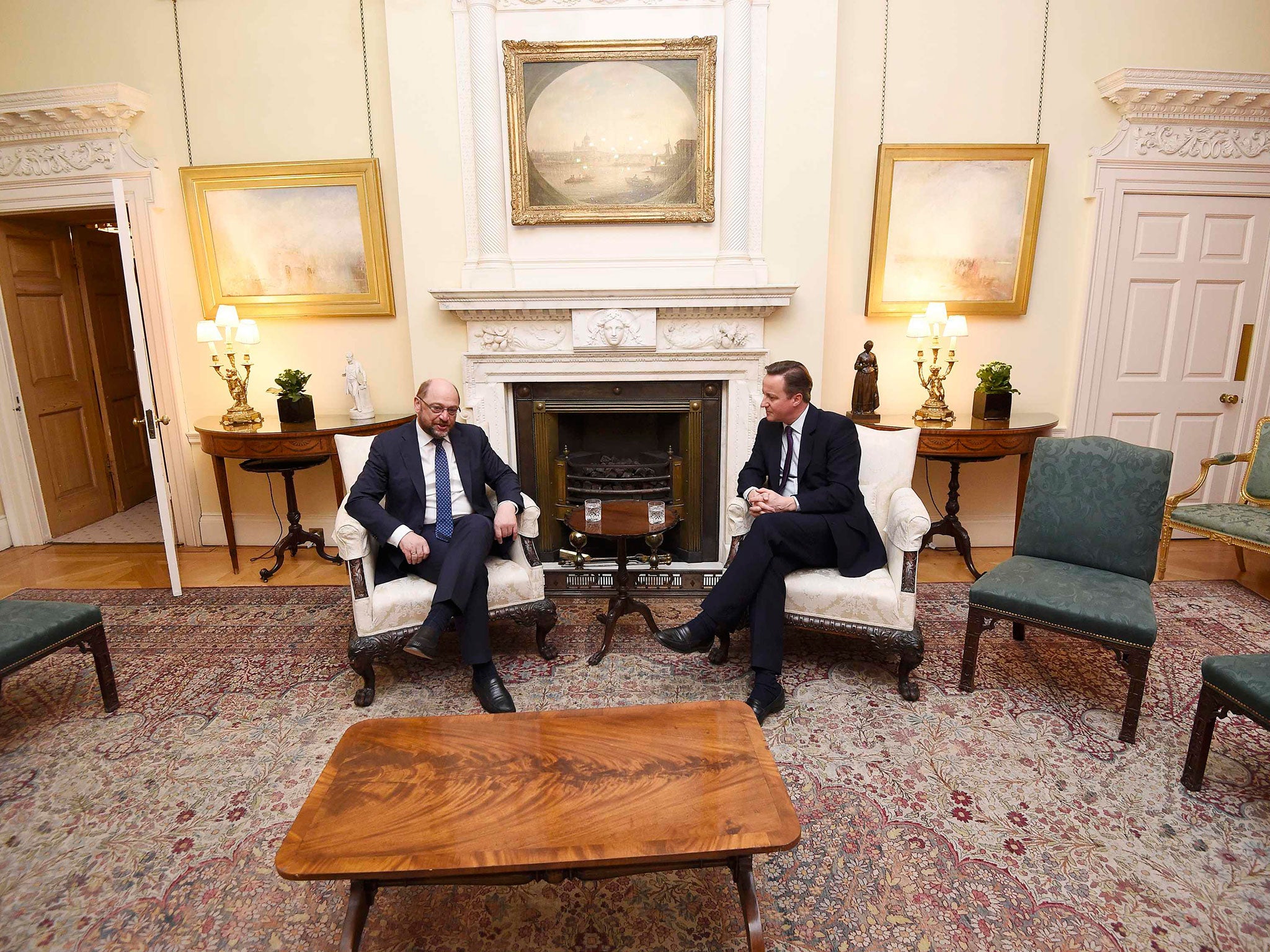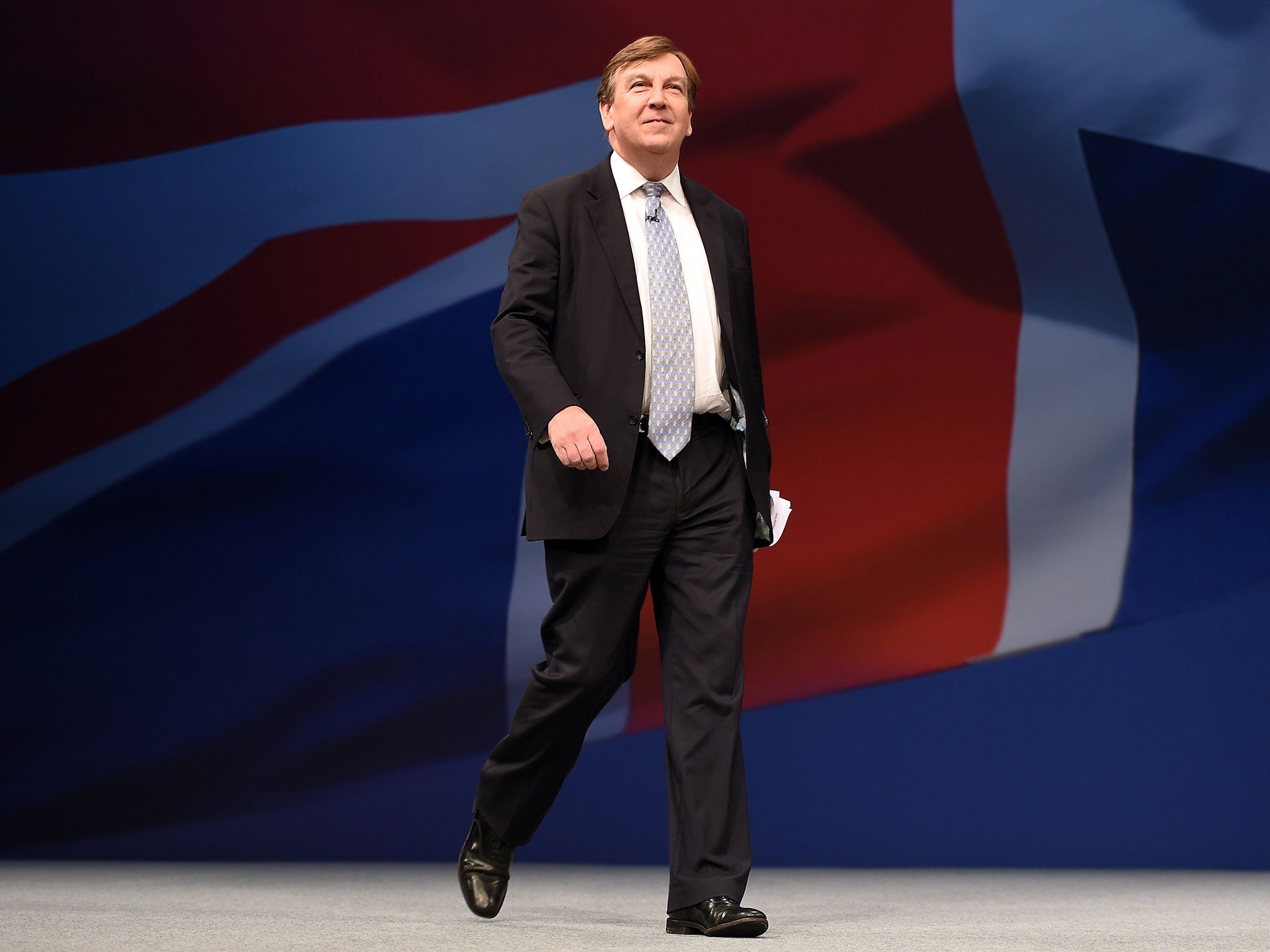EU referendum: Culture Secretary John Whittingdale may defy David Cameron by backing Brexit
As Prime Minister heads across the Channel, his critics at home are finding their voice

The Cabinet’s collective responsibility over Europe is under strain a a senior minister dropped a broad hint that he was preparing to campaign for Britain to leave the EU.
John Whittingdale, the Culture Secretary, signalled he was contemplating arguing for Brexit in the EU membership referendum which the Prime Minister hopes to stage in late June.
David Cameron is also facing pressure from Brussels over his planned deal to recast Britain’s relationship with the EU, following claims that none of his fellow leaders are happy with his reform proposals as they stand.
“There is a lot of frustration and concerns. It’s clear the negotiations are going to be difficult,” a source close to the discussions told the BBC.
Mr Cameron flies to two European capitals on 5 February for further talks with the continental counterparts he needs to convince, having instructed Eurosceptic ministers to keep their counsel until he secures a deal for his reform plans from other EU leaders at a Brussels summit and presents it to the Cabinet shortly afterwards.
He has said that ministers with “long-standing and sincerely held” views on the issue would then be free to argue for Britain to leave the EU.

His strictures have provoked anger in the Out camp which has argued that senior Cabinet members such as the Foreign Secretary, Philip Hammond, have already started making the case for remaining in the bloc.
Mr Whittingdale is one of four Cabinet ministers who are expected to argue for a Leave vote, along with Iain Duncan Smith, the Work and Pensions Secretary, Theresa Villiers, the Northern Ireland Secretary, and Chris Grayling, the Commons leader.
The Culture Secretary, a former political secretary to the late Baroness Thatcher, made plain his intentions in an interview in which he highlighted his well-known Euroscepticism.
“My position is that the Prime Minister is out there trying to negotiate the best deal he can for the country. I have a track record where I’ve been highly critical of the way the EU works and I have opposed measures for closer integration and it certainly needs reform,” he told The House magazine.
He added: “I hope the Prime Minister will get that agreement and then I’ll look at it when he comes back with it.”
Asked whether he would follow Mr Hammond’s lead and rule out backing Brexit, he replied: “I wouldn’t.”
He was speaking as the Prime Minister discussed his reform demands with other EU leaders in the margins of the London summit on the Syrian refugee crisis.
Mr Cameron will travel to Poland and Denmark on 5 February for further discussions as negotiations intensify ahead of the EU summit in Brussels on 18-19 February.
Speaking in Westminster, the head of the In camp, Lord Rose, predicted a comfortable victory in the membership referendum and promised not to run a campaign that would be based on fear over the impact of leaving the EU.
“A win is a win. If we get to 50.001 per cent it is a win. I want to win, but we will win by a substantial margin,” said the businessman, who is chairman of Britain Stronger in Europe.
He said: “If we just keep going, beating the drum and saying what the facts are, then common sense will prevail.”
Another leading figure in the campaign, the former Labour Home Secretary Alan Johnson, courted controversy when he said the Prime Minister’s demand for restrictions on EU workers’ right to benefits would do nothing to cut immigration levels.
Mr Johnson, the chairman of Labour In for Britain, said the benefits curb “was never going to do that”. He told BBC Radio 4: “The issue of in-work benefits is not a draw factor. Indeed, this is a two-way process – no country has more of its people working in other countries than Britain, more than Poland, more than any other country in Europe.”
On the other side of the debate, the senior Tory MP David Davis said: “The prime minister’s emergency brake on migrant benefits would not stop a push bike.”
Meanwhile, infighting between Out supporters intensified as Arron Banks, the founder of Leave.EU, accused senior figures in the rival Vote Leave campaign of putting their careers ahead of winning the referendum.
Mr Banks claimed Vote Leave had dismissed his request for a merger after two senior figures, Matthew Elliott and Dominic Cummings, were sidelined in a reshuffle.
Join our commenting forum
Join thought-provoking conversations, follow other Independent readers and see their replies
Comments
Bookmark popover
Removed from bookmarks